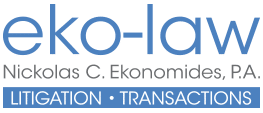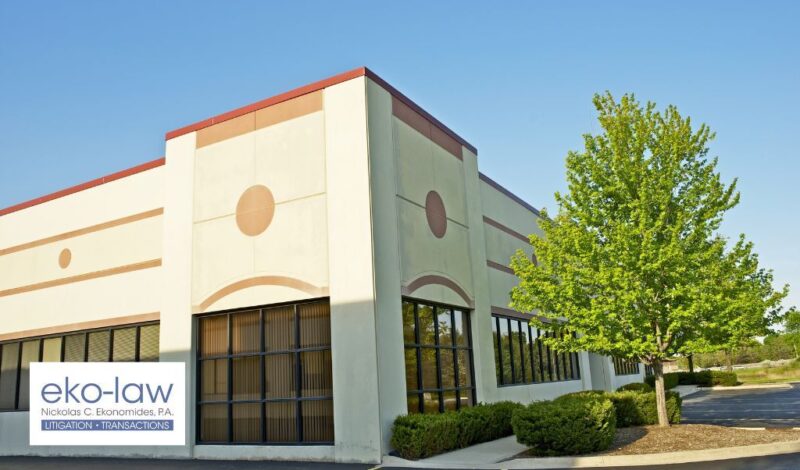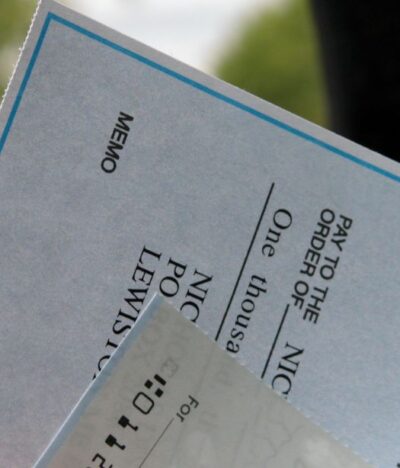What are some common lease violations commercial property owners need to be aware of?
If you’re a landlord or commercial property owner in Tampa Bay or Clearwater, understanding commercial property tenant rights is crucial to protecting your investment and navigating disputes. Lease violations are common issues in commercial leasing, and being informed about both your rights and your tenant’s rights can help you avoid costly business litigation, ensure compliance with commercial real estate law, and maintain successful long-term property ownership. Below, we outline frequent lease breaches, what Florida law says about commercial tenant rights, and proactive steps to minimize risks. Commercial property tenant rights are primarily defined by the lease agreements and are less regulated than residential landlord and tenant issues in Florida.
Landlords in Tampa Bay and Clearwater should know common lease violations, clarify lease terms, and promptly address disputes. Solid legal advice from an experienced business attorney is key to avoiding business litigation and ensuring compliance with commercial real estate law.
Table of Contents
- Common Lease Violations Explained
- Understanding Commercial Property Tenant Rights
- Handling Lease Disputes: The Legal Landscape
- Key Provisions of Florida Commercial Lease Agreements
- Proactive Steps for Landlords and Property Owners
- Quick Summary
- FAQs about Commercial Property Tenant Rights
- CTA
Common Lease Violations Explained
Lease agreements for commercial tenants are legal documents with very specific terms. Yet, misunderstandings and oversights often lead to common violations such as:
- Nonpayment of Rent: The most direct and detrimental breach for landlords.
- Unauthorized Alterations: Making structural changes or improvements without prior written approval.
- Improper Subleasing: Subletting the space without landlord consent, contrary to lease terms.
- Failure to Perform Repairs and Maintenance: Tenants are often obligated to handle certain maintenance tasks.
- Failure to Provide Required Insurance: Tenants will be required to carry insurance covering their contents and the landlord for liability at the least.
- Use Violations: Operating outside of permitted business activities or violating zoning rules.
- Disruptive Behavior: Causing disturbances that affect neighboring occupants or violate property rules.
Recognizing these issues quickly can help Tampa Bay and Clearwater property owners enforce contract terms and reduce the likelihood of complex business litigation.
Understanding Commercial Property Tenant Rights
Commercial tenant rights in Florida differ significantly from those in residential real estate. Here’s what landlords should know:
Core Commercial Tenant Rights
- Right to Quiet Enjoyment: Tenants have the right to use the premises without interference from the property owner, as long as they abide by the lease.
- Notice Requirements: Florida law generally does not dictate how much notice must be given prior to eviction for nonpayment of rent (unlike residential leases), but your lease agreement should specify.
- Repair Obligations: Unless the lease says otherwise, commercial tenants often handle repairs and maintenance. Disputes often arise when these duties are unclear.
- Assignment and Subletting Rights: Whether tenants can assign their lease or sublet depends on explicit agreement terms.
Violations by either party may give rise to remedies under commercial real estate law, including damages, eviction, or contract modification. Consulting with a business attorney in Clearwater or Tampa Bay is advised for specific disputes.
Handling Lease Disputes: The Legal Landscape
Business litigation regarding commercial leasing often centers around unresolved violations or ambiguous lease agreement language. Florida courts typically enforce written lease terms as they stand.
Steps to Address Lease Violations
- Document the Violation: Keep clear records of the breach.
- Issue a Written Notice: Specify what term has been violated and the remedy required.
- Provide Reasonable Time to Cure: If the lease allows, give the tenant time to correct the issue, especially for non-monetary breaches.
- Pursue Legal Action: If the problem isn’t resolved, consult with a qualified business attorney in Clearwater or Tampa Bay for next steps, which could include eviction and damages claims.
Proactivity and clear communication help resolve many conflicts outside of court.
Key Provisions of Florida Commercial Lease Agreements
Reviewing or drafting strong lease agreements is the single most important tactic to avoid costly mistakes. Essential clauses include:
- Rent & Payment Terms: Specify due date, late fees, and escalation clauses.
- Maintenance & Repairs: Carefully delineate who is responsible for what.
- Default & Remedies: Spell out what constitutes a breach and the consequences.
- Assignment/Sublease Provisions: Define if, how, and when subleasing or assignment is allowed.
- Use Restrictions: Limit, or define, the type of business or activity permissible in the space.
- Insurance Requirements: Ensure both parties carry sufficient coverage.
Consulting with an attorney experienced in commercial real estate law in Tampa Bay helps ensure your lease is enforceable and clear.
Proactive Steps for Landlords and Property Owners
- Regularly Review Leases: Update lease agreements as needed to reflect legal changes or lessons learned from business litigation.
- Routine Inspections: Schedule regular walkthroughs to identify potential issues early.
- Clear Communication: Keep open channels of discussion with your commercial tenants.
- Professional Legal Guidance: Use a business attorney for drafting, reviewing, and enforcing leases, especially for high-value or long-term agreements.
- Prompt Action: Respond quickly to any reported or discovered violations.
Taking these steps can limit disputes, help preserve tenant relationships, and protect your real estate investment.
Frequently Asked Questions (FAQs)
1. What are the most common commercial lease violations in Florida?
Nonpayment of rent, unauthorized alterations, improper subleasing, failure to maintain the property, and conducting prohibited business activities are among the most frequent breaches.
2. What rights do commercial tenants have if the landlord fails to perform repairs?
In most cases, the lease controls. If the property owner is obligated to make specific repairs and fails to do so, the tenant may have remedies under commercial real estate law, such as the right to repair and deduct or, in some cases, the right to terminate the lease after statutory notice.
3. How much notice must a landlord give before evicting a commercial tenant?
Florida law defers to the lease agreement. There is no set statutory notice requirement for commercial evictions, so always check your contract terms first.
4. Are commercial leases required to allow subleasing?
No. Whether a commercial tenant can sublease depends on what is specified in the lease agreement. Landlords should state their preferences and approval process clearly. The same is true for assignments of lease.
5. When should a landlord involve a business attorney in Tampa Bay or Clearwater?
Seek legal advice whenever a lease violation occurs, there is potential for business litigation, or before drafting or renewing lease agreements, especially for long-term or high-value transactions.
Contact Eko Law Today to Learn More About Commercial Property Tenant Rights
If you’re a commercial property landlord in Tampa Bay or Clearwater and want to ensure you’re fully compliant with Florida’s tenant laws, Eko Law is here to help. Our experienced legal team specializes in commercial real estate law and can review your lease agreements, address potential violations, and protect your rights as a property owner.
Don’t wait until a dispute turns into a lawsuit. Schedule a consultation with Eko Law today and safeguard your investments with confidence.







